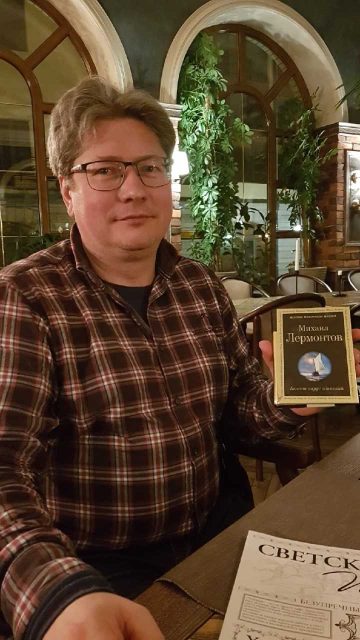Core national values as the development force of Russian society

Sergey Savin,
Associate Professor,
St. Petersburg State University,
St. Petersburg, Russian Federation
In July 2021 the National Security Strategy of Russian Federation was accepted in which traditional Russian moral values were articulated at the state level for the first time. Their protection was also declared as one of the priorities for national security, including ‘from attacks by the United States and its allies, as well as from transnational corporations, foreign non-profit or non-governmental organizations and extremist groups’. Here, negative influence means the spread of both modern Western liberal democratic values and the radical values of individual social movements. The Strategy formulates the concepts of cultural sovereignty and the unified cultural space of Russian society in order to counter the influence of ‘alien’ values.
Which traditional moral values are outlined in the new Strategy? Some are patriotic and rather conservative: devotion to the Fatherland and responsibility for its fate, collectivism, mutual help and respect, historical memory, family orientation, and intergenerational continuity. At the same time, other rather liberal values are also declared: dignity, human rights and freedoms, civic consciousness, high moral ideals, creative work, the priority of the moral over the material, humanism, mercy, and justice. Among these values there are those that are generally accepted by most countries and cultures, with post-material values and humanity being the core of the world sustainable development in XXI century. But what exactly makes the core of Russian values? It is important to understand that the values and norms of socio-cultural identity form the basis of the national society. The core national values shared by the majority of society are not just a foundation for consolidation and development, but they are also a combination of those that are unique and those that are generally accepted and exist in different cultures, traditions and countries around the world, and which are passed on through own historical experience, and reflected in the historical consciousness.
The data of Russian public opinion survey analysis, conducted by St. Petersburg State University in 2019 (N=1600), reveal the national values of Russian society. Among the values shared by the majority of Russian citizens are peace (32.1%), dignity (10.8%), freedom (10.5%), order (10.4%) and truth (9.7%). These can be so-called the first order values. Russians place peace significantly higher than the other values, which shows directly the importance of the humanistic orientation of social ties, and the ideals of being united as well as stable. Dignity, freedom, order and truth are almost equally valued (about 10% each), which reflects the model of socio-political structure as a balance between freedom and order, a person and the state. The values of equality (6.7%), faith (5.7%) and prosperity (4.7%) can be pointed to as the values of the so-called second order. They are somewhat diverse and are associated with three ideologies: socialist, conservative and liberal. These three forces are currently being actively constructed in the discursive political field and may form the basis for parliamentary parties in the future.
The value of peace as the moral dominant of Russian society is of a supra-ethnic and supra-confessional nature, representing a common model of mutual enrichment of cultures and ideas that lead towards peaceful development. There is a special ethical principle in the nation thanks to the Russian philosophical tradition, formulated by F. M. Dostoevsky. This principle states that one should not show love for one’s nationality by hating others, especially those who are neighboring. In striving to perceive our own nationality positively, we should at least be fair to our neighbors. The value of peace as a national idea of Russia, then, is greatly rooted in this sense of humanism.
The word “peace” is also strongly embedded in the consciousness of Russian society. It is worth recalling that in 2015 Russians chose the “MIR” (“peace”) logo as the name of the national payment bank card following the results of an online vote in which more than 40 thousand people took part. Moreover, the most famous masterpiece of Russian literature according to polls is the novel “War and Peace” by L. N. Tolstoy, which centers on the ideals of peace. Furthermore, the main national holiday, Victory Day, is perceived in the public consciousness not just as historical pride for the great victory in the Second World War, but also as a value of peace, on the altar of which millions of lives of compatriots were sacrificed.
Unfortunately, the lack of solidarity has a negative impact on the development of civil society. However, in the case that solidarity increases, the desired structure of civil society would be better built between a person and the state. How national policy stems from the core values of Russian people, on the one hand, and how it forms the basic values ensuring unity and ethno-confessional harmony, on the other will indicate the success of this national policy as the developmental force of Russia.
Email: ssd_sav@mail.ru
Expert article 3002
> Back to Baltic Rim Economies 4/2021
To receive the Baltic Rim Economies review free of charge, you may register to the mailing list.
The review is published 4-6 times a year.
